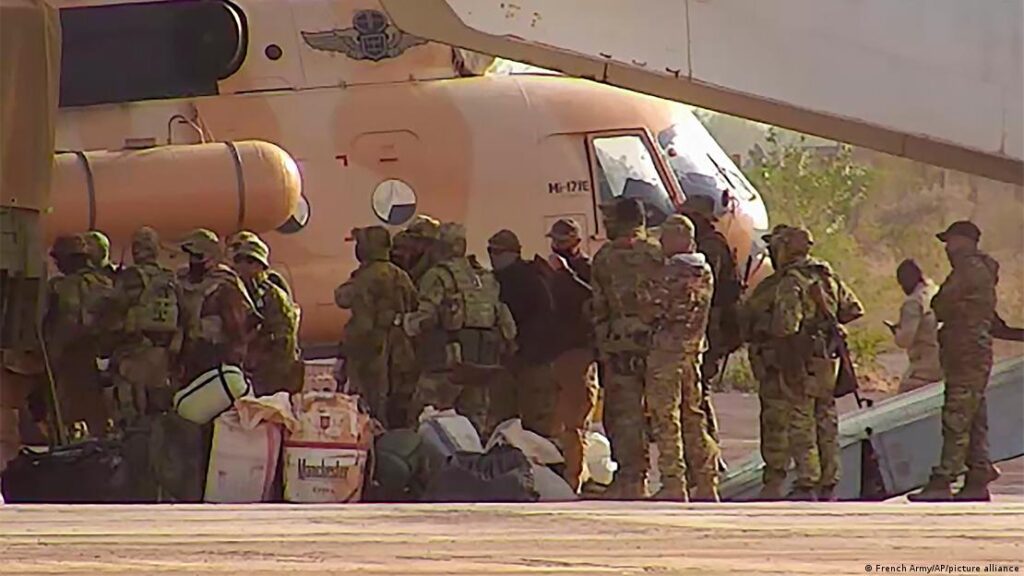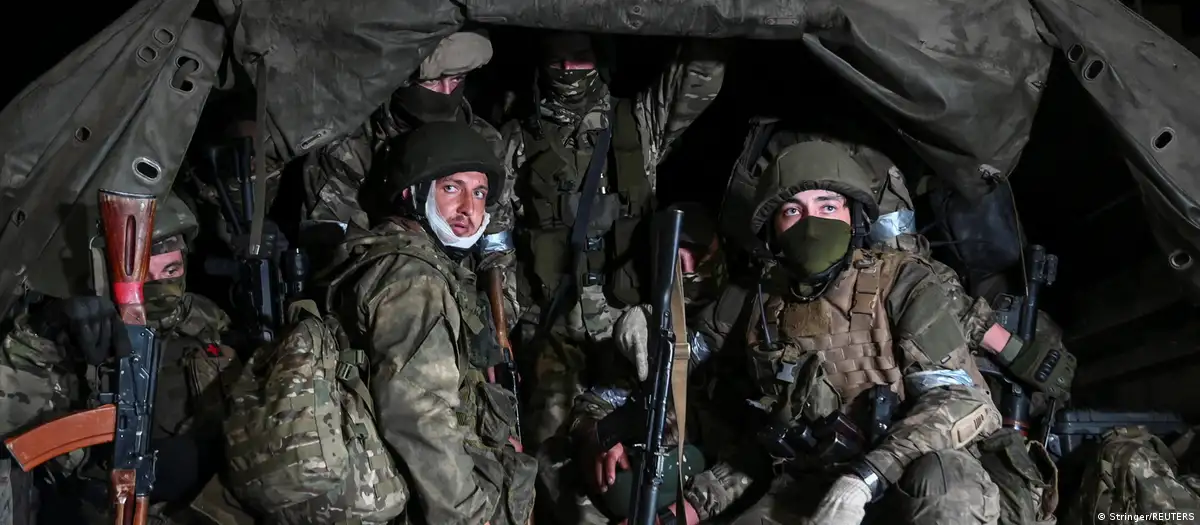The UK wants to include a Russian paramilitary company on the list of terrorist organizations. Other countries are hesitant to adopt the same measure.
(DW) Torture, murder, looting – the terrible list of accusations against the Wagner Group is long. In recent years, the mercenaries have been accused of various war crimes in several conflict areas where they were active. They were led by Russian oligarch Yevgeny Prigozhin, who died after a plane crash in August. The private army leads Russia’s paramilitary operations in regions where the country is engaged in armed conflict.
In Libya, for example, the military group is said to have laid landmines, explosives that are banned under international law. In Mali and the Central African Republic, mercenaries are suspected of carrying out executions. Wagner members also allegedly tortured and murdered Ukrainian civilians.
“The group’s operations in Ukraine, the Middle East and Africa are a threat to global security,” said UK Home Secretary Suella Braverman. “They are terrorists, plain and simple,” she added.
For this reason, Braverman wants the group classified as a terrorist organization. The Home Office has presented a bill to the British Parliament on the subject. Prime Minister Rishi Sunak congratulated the initiative in a post on X, the old Twitter.
What characterizes a terrorist organization?
Braverman’s proposal is based on the UK’s Counter-Terrorism Act, which defines terrorism as “the threat or use of violent means to influence governments or intimidate the population in favor of political, religious or ideological objectives”.
Other countries and international organizations have applied similar definitions, but the concepts of “terrorism” and “terrorist organization” vary. Despite numerous attempts, there is no single global definition of these terms.
According to German law, for example, terrorism is an enduring struggle with political ends that must be enforced with the help of attacks on life, limb and property. However, unlike the United Kingdom, Germany does not intend to classify organizations as terrorist in isolation, but rather in conjunction with the European Union.
What are the consequences of this classification?
In the UK, classifying an organization as a terrorist organization makes it illegal to support the private military group in any way. Colleagues who, for example, organize meetings for Wagner members, provide financial or logistical support, or publicize the group’s symbols are subject to fines and sentences of more than 14 years in prison.
The state can also confiscate property belonging to the Wagner Group. The UK, as well as other countries and international organizations, have already imposed sanctions on the paramilitary company and Prigozhin, including the freezing of financial assets. In the future, members and supporters of the Wagner Group could find it more difficult to acquire funds in the country, as this activity could lead to criminal proceedings.
Classification as a terrorist creates a legal basis for the Wagner Group’s victims to sue it in UK courts, even if the crimes were not committed on British soil.
Bans in other countries
Even before Russia launched the large-scale offensive against Ukraine, the Wagner Group was already on the radar of international human rights organizations for alleged war crimes in areas of the Middle East and Africa. In 2020, the United States and the European Union imposed sanctions against Prigozhin and his private army for fighting alongside General Haftar in Libya.
In early 2023, the United States characterized the Wagner Group as a “transnational criminal organization”. In the wake of this decision, other governments began to make similar efforts to classify the group as a terrorist organization.
There were proposals in the European Parliament, the American Congress, the French National Assembly and the Swedish Parliament. While the EU was still hesitant to promote a bloc-wide ban, Lithuania had already labeled the Wagner Group a terrorist organization. The Parliamentary Assembly of the Organization for Security and Cooperation in Europe also passed a resolution to the same effect.

Will other countries follow this trend?
In Germany, pressure is mounting for such a classification at EU level. At the end of May, the conservative Christian Democratic Union (CDU) and Christian Social Union (CSU) sent a proposal to this effect, but so far the governing coalition has not found a legal basis to classify the Wagner Group as a terrorist organization.
The government responded to the opposition’s request by saying that “the legal prerequisites for the EU to include organizations on the terrorist list are high”, as reported by the German newspaper Frankfurter Allgemeine Zeitung.
Classifying the Wagner Group as a terrorist organization requires “a robust body of evidence based on public information”. Otherwise, this data could not be used in legal proceedings, and the movement to classify the group as a terrorist organization would be innocuous, with no legal consequences.
In the United States, the discussion about a possible classification of the Wagner Group is in full swing. Arguments for and against such a decision are being considered in the debate. However, the issue is not only legal, but also political. Equating the Wagner Group with other organizations such as Boko Haram, Islamic State or Al-Qaeda could send a strong message of condemnation of their actions.
However, President Joe Biden fears that this position could jeopardize US diplomatic relations with African countries such as Mali and the Central African Republic, where the Wagner Group operates with the tacit permission of local governments.
